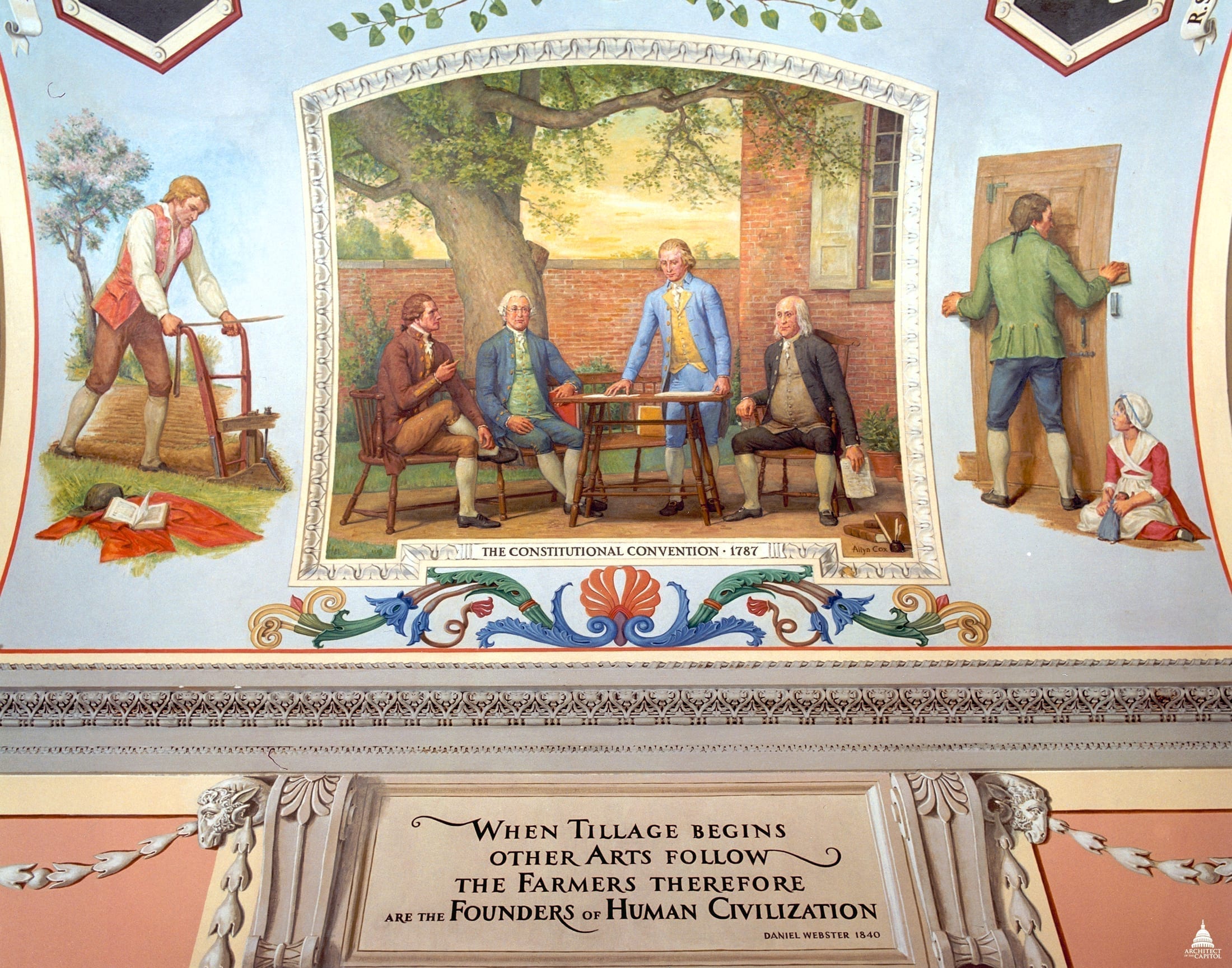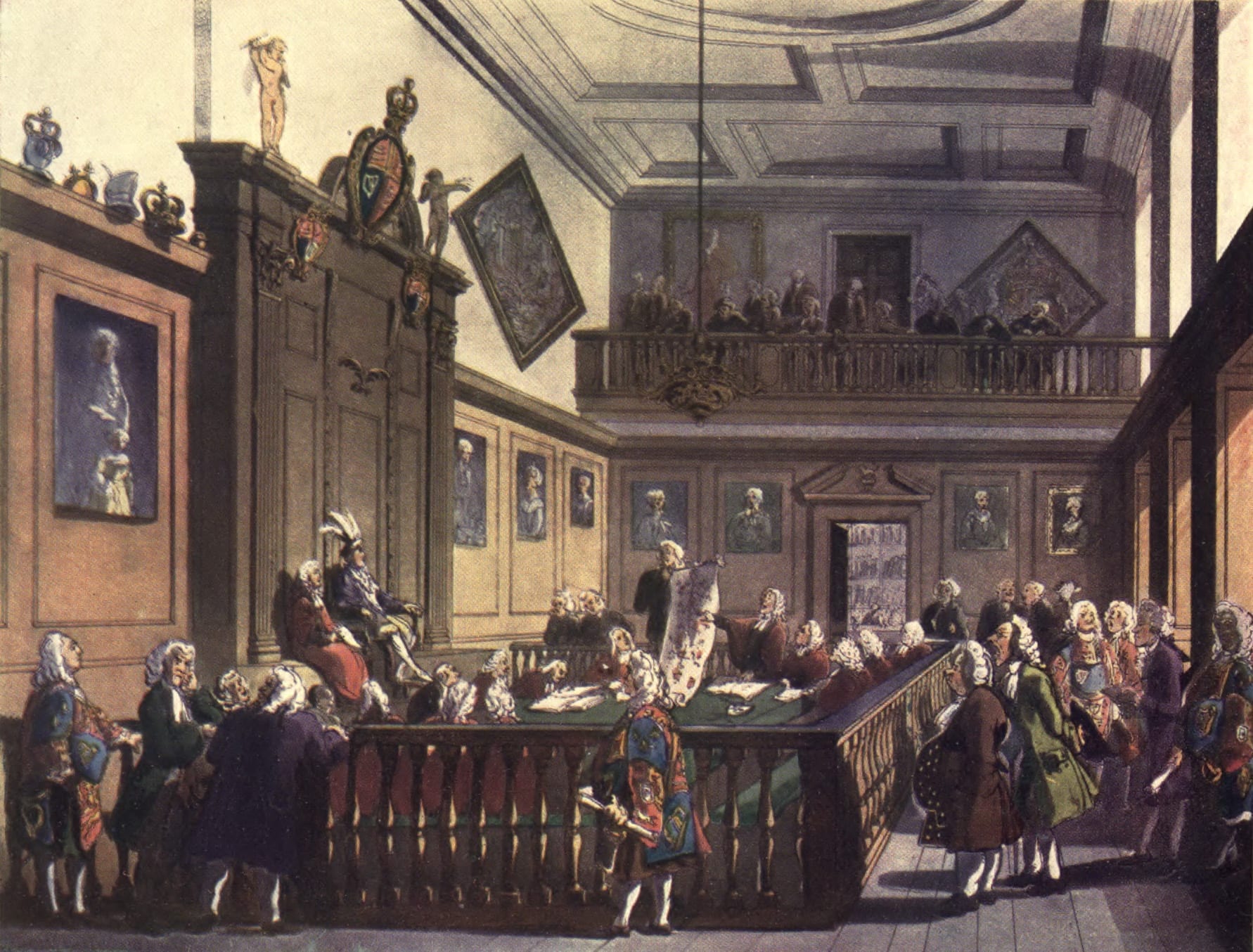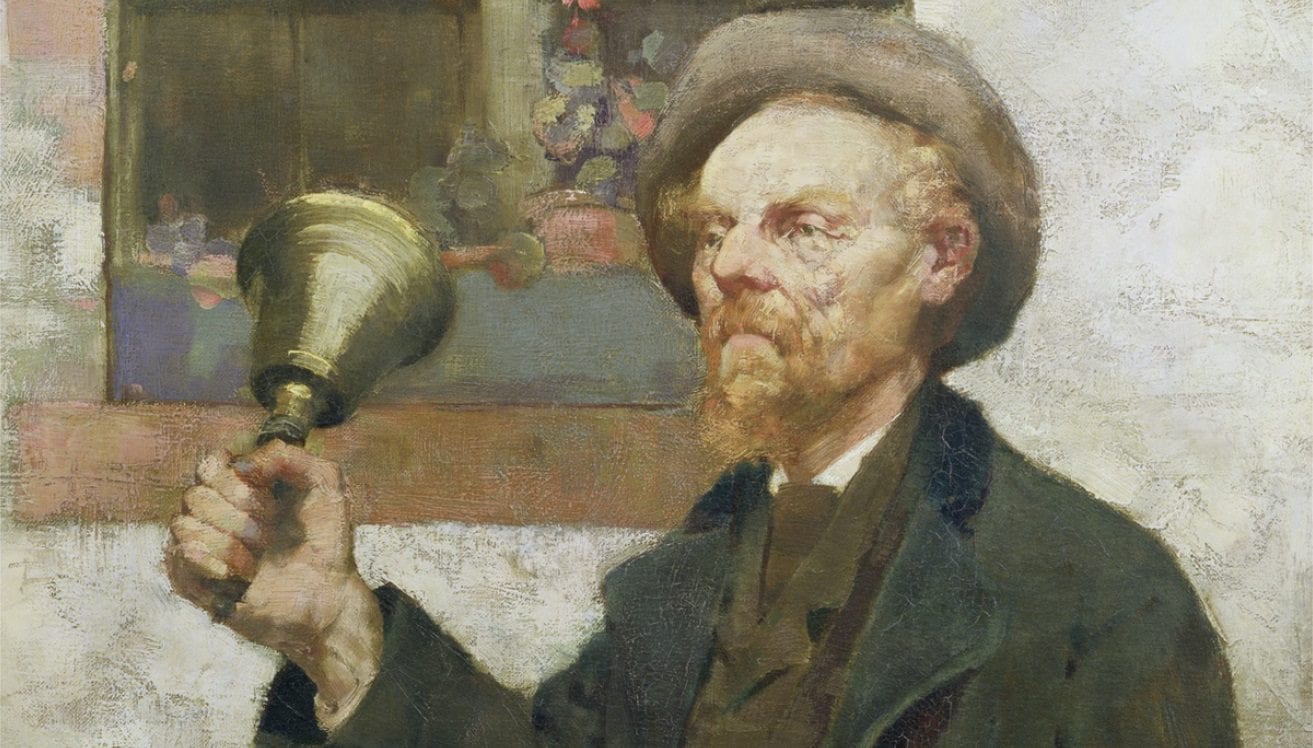
Introduction
Born into a well-to-do merchant family, Judith Sargent Murray (1751–1820) benefited from her parents’ liberal views on the education of women. Although her hometown of Gloucester on the Massachusetts coast suffered as a result of trade restrictions during the American colonies’ struggle for independence, Judith was attracted to the ideas of the revolutionary movement. As she indicated in the opening to this, her most famous essay, she quickly saw the implications of the rhetoric of liberty and equality to unbalance not only the political order, but gender relations as well. Published pseudonymously in 1790, “On the Equality of the Sexes” circulated among Murray’s circle of friends for more than a decade before it first appeared in print: her identity as the author behind its clear arguments for the innate equality of men and women was a relatively open secret. In the years following the publication of this essay, Murray became one of the primary promoters of the post-Revolutionary notion of “Republican Motherhood.” Along with other advocates of the view, she argued that the only chance the young nation had to succeed in its experiment with self-government was to focus on the education of its all citizens, men and women, in the habits of mind and heart that would allow them to use their newfound liberties well.
Source: Constantia, The Massachusetts Magazine, March 1790, 132–35; April 1790, 223–26.
To the Editors of The Massachusetts Magazine
Gentlemen,
The following essay is yielded to the patronage of candour. If it hath been anticipated, the testimony of many respectable persons, who saw it in manuscripts as early as the year 1779, can obviate the imputation of plagiarism. . . .
Is it upon mature consideration we adopt the idea, that nature is thus partial in her distributions? Is it indeed a fact, that she hath yielded to one-half of the human species so unquestionable a mental superiority? I know that to both sexes elevated understandings, and the reverse, are common. But, suffer me to ask, in what the minds of females are so notoriously deficient, or unequal. May not the intellectual powers be ranged under these four heads—imagination, reason, memory, and judgment. The province of imagination hath long since been surrendered to us, and we have been crowned and undoubted sovereigns of the regions of fancy. Invention is perhaps the most arduous effort of the mind; this branch of imagination hath been particularly ceded to us, and we have been time out of mind invested with that creative faculty. Observe the variety of fashions (here I bar the contemptuous smile) which distinguish and adorn the female world: how continually are they changing, insomuch that they almost render the wise man’s assertion problematical, and we are ready to say, there is something new under the sun. Now what a playfulness, what an exuberance of fancy, what strength of inventine imagination, doth this continual variation discover? Again, it hath been observed that if the turpitude of the conduct of our sex hath been ever so enormous, so extremely ready are we that the very first thought presents us with an apology so plausible as to produce our actions even in an amiable light. Another instance of our creative powers, is our talent for slander; how ingenious are we at inventive scandal? What a formidable story can we in a moment fabricate merely from the force of a prolific imagination? How many reputations, in the fertile brain of a female, have been utterly despoiled? How industrious are we at improving a hint? Suspicion how easily do we convert into conviction, and conviction, embellished by the power of eloquence, stalks abroad to the surprise and confusion of unsuspecting innocence. Perhaps it will be asked if I furnish these facts as instances of excellency in our sex. Certainly not; but as proofs of a creative faculty, of a lively imagination. Assuredly, great activity of mind is thereby discovered, and was this activity properly directed, what beneficial effects would follow. Is the needle and kitchen sufficient to employ the operations of a soul thus organized? I should conceive not. Nay, it is a truth that those very departments leave the intelligent principle vacant, and at liberty for speculation. Are we deficient in reason? We can only reason from what we know, and if an opportunity of acquiring knowledge hath been denied us, the inferiority of our sex cannot fairly be deduced from thence. Memory, I believe, will be allowed us in common, since everyone’s experience must testify, that a loquacious old woman is as frequently met with, as a communicative man; their subjects are alike drawn from the fund of other times, and the transactions of their youth, or of maturer life, entertain, or perhaps fatigue you, in the evening of their lives.
“But our judgment is not so strong—we do not distinguish so well.” Yet it may be questioned, from what doth this superiority, in this determining faculty of the soul, proceed. May we not trace its source in the difference of education, and continued advantages? Will it be said that the judgment of a male of two years old is more sage than that of a female’s of the same age? I believe the reverse is generally observed to be true. But from that period what partiality! How is the one exalted, and the other depressed, by the contrary modes of education which are adopted! The one is taught to aspire, and the other is early confined and limited. As their years increase, the sister must be wholly domesticated, while the brother is led by the hand through all the flowery paths of science. Grant that their minds are by nature equal, yet who shall wonder at the apparent superiority, if indeed custom becomes second nature; nay if it taketh place of nature, and that it doth the experience of each day will evince. At length arrived at womanhood, the uncultivated fair one feels a void, which the employments allotted her are by no means capable of filling. What can she do? To books she may not apply; or if she doth, to those only of the novel kind, lest she merit the appellation of a learned lady; and what ideas have been affixed to this term, the observation of many can testify. Fashion, scandal, and sometimes what is still more reprehensible, are then called in to her relief; and who can say to what lengths the liberties she takes may proceed. Meantimes she herself is most unhappy; she feels the want of a cultivated mind. Is she single, she in vain seeks to fill up time from sexual employments or amusements. Is she united to a person whose soul nature made equal to her own, education hath set him so far above her, that in those entertainments which are productive of such rational felicity, she is not qualified to accompany him. She experiences a mortifying consciousness of inferiority, which embitters every enjoyment. Doth the person to whom her adverse fate hath consigned her possess a mind incapable of improvement, she is equally wretched, in being so closely connected with an individual whom she cannot but despise. Now, was she permitted the same instructors as her brother, . . . [her] mind, thus filled, would have little room for the trifles with which our sex are, with too much justice, accused of amusing themselves, and they would thus be rendered fit companions for those, who should one day wear them as their crown. Fashions, in their variety, would then give place to conjectures, which might perhaps conduce to the improvements of the literary world; and there would be no leisure for slander or detraction. Reputation would not then be blasted, but serious speculations would occupy the lively imaginations of the sex. Unnecessary visits would only be indulged by way of relaxation, or to answer the demands of consanguinity and friendship. Females would become discreet, their judgments would be invigorated, and their partners for life being circumspectly chosen, an unhappy Hymen[1] would then be as rare, as is now the reverse.
Will it be urged that those acquirements would supersede our domestic duties. I answer that every requisite in female economy is easily attained; and, with truth I can add, that when once attained, they require no further mental attention. Nay, while we are pursuing the needle, or the superintendency of the family, I repeat, that our minds are at full liberty for reflection; that imagination may exert itself in full vigor; and that if a just foundation is early laid, our ideas will then be worthy of rational beings. If we were industrious we might easily find time to arrange them upon paper, or should avocations press too hard for such an indulgence, the hours allotted for conversation would at least become more refined and rational. Should it still be vociferated, “Your domestic employments are sufficient”—I would calmly ask, is it reasonable, that a candidate for immortality, for the joys of heaven, an intelligent being, who is to spend an eternity in contemplating the works of the Deity, should at present be so degraded, as to be allowed no other ideas, than those which are suggested by the mechanism of a pudding, or the sewing the seams of a garment? Pity that all such censurers of female improvement do not go one step further, and deny their future existence; to be consistent they surely ought.
Yes, ye lordly, ye haughty sex, our souls are by nature equal to yours; the same breath of God animates, enlivens, and invigorates us; and that we are not fallen lower than yourselves,[2] let those witness who have greatly towered above the various discouragements by which they have been so heavily oppressed; and though I am unacquainted with the list of celebrated characters on either side, yet from the observations I have made in the contracted circle in which I have moved, I dare confidently believe that from the commencement of time to the present day, there hath been as many females as males, who, by the mere force of natural powers, have merited the crown of applause; who, thus unassisted, have seized the wreath of fame. I know there are who assert, that as the animal power of the one sex are superior, of course their mental faculties also must be stronger; thus attributing strength of mind to the transient organization of this earthborn tenement. But if this reasoning is just, man must be content to yield the palm to many of the brute creation, since by not a few of his brethren of the field, he is far surpassed in bodily strength. Moreover, was this argument admitted, it would prove too much, for ocular demonstration evinceth, that there are many robust masculine ladies, and effeminate gentlemen. . . . Besides, were we to grant that animal strength proved anything, taking into consideration the accustomed impartiality of nature, we should be induced to imagine, that she had invested the female mind with superior strength as an equivalent for the bodily powers of man. But waiving this however palpable advantage, for equality only, we wish to contend.
I am aware that there are many passages in the sacred oracles which seem to give the advantage to the other sex; but I consider all these as wholly metaphorical. Thus David was a man after God’s own heart, yet see him enervated by his licentious passions! Behold him following Uriah to the death, and shew me wherein could consist the immaculate Being’s complacency. Listen to the curses which Job bestoweth upon the day of his nativity, and tell me where is his perfection, where his patience—literally it existed not. David and Job were types of him who was to come; and the superiority of man, as exhibited in scripture, being also emblematical, all arguments deduced from thence, of course fall to the ground. . . .
. . . But in one respect, O ye arbiters of our fate! we confess that the superiority is indubitably yours; you are by nature formed for our protectors; we pretend not to vie with you in bodily strength; upon this point we will never contend for victory. Shield us then, we beseech you, from external evils, and in return we will transact your domestic affairs. Yes, your, for are you not equally interested in those matters with ourselves? Is not the elegancy of neatness as agreeable to your sight as to ours; is not the well savored viand equally delightful to your taste; and doth not your sense of hearing suffer as much, from the discordant sounds prevalent in an ill regulated family, produced by the voices of children and many et ceteras?
CONSTANTIA
By way of supplement to the foregoing pages, I subjoin the following extract from a letter, wrote to a friend in the December of 1780
. . . The superiority of your sex hath, I grant, been time out of mind esteemed a truth incontrovertible; in consequence of which persuasion, every plan of education hath been calculated to establish this favorite tenet. Not long since, weak and presuming as I was, I amused myself with selecting some arguments from nature, reason, and experience; against this so generally received idea, I confess that to sacred testimonies I had not recourse. I held them to be merely metaphorical, and thus regarding them, I could not persuade myself that there was any propriety in bringing them to decide in this very important debate. However, as you, sir, confine yourself entirely to the sacred oracles, I mean to bend the whole of my artillery against those supposed proofs, which you have from thence provided. . . . And first, to begin with our great progenitors; but here, suffer me to premise, that it is for mental strength I mean to contend, for with respect to animal powers, I yield them undisputed to that sex, which enjoys them in common with the lion, the tiger, and many other beasts of prey. . . . Well, but the woman was first in the transgression. Strange how blind self-love renders you men; were you not wholly absorbed in a partial admiration of your own abilities, you would long since have acknowledged the force of what I am now going to urge. It is true some ignoramuses have absurdly enough informed us, that the beauteous fair of paradise, was seduced from her obedience, by a malignant demon, in the guise of a baleful serpent; but we, who are better informed, know that the fallen spirit presented himself to her view, a shining angel still; for thus, saith the critics in the Hebrew tongue, ought the word to be rendered.
Let us examine her motive—Hark! the seraph declares that she shall attain a perfection of knowledge; for is there aught which is not comprehended under one or other of the terms good and evil. It doth not appear that she was governed by any one sensual appetite; but merely by a desire of adorning her mind; a laudable ambition fired her soul, and a thirst for knowledge impelled the predilection so fatal in its consequences. Adam could not plead the same deception; assuredly he was not deceived; nor ought we to admire his superior strength, or wonder at his sagacity, when we so often confess that example is much more influential than precept. His gentle partner stood before him, a melancholy instance of the direful effects of disobedience; he saw her not possessed of that wisdom which she had fondly hoped to obtain, but he beheld the once blooming female, disrobed of that innocence, which had heretofore rendered her so lovely. To him, then, deception became impossible, as he had proof positive of the fallacy of the argument, which the deceiver had suggested. What then could be his inducement to burst the barriers, and to fly directly in the face of that command, which immediately from the mouth of deity he had received, since, I say, he could not plead that fascinating stimulus, the accumulation of knowledge, as indisputable conviction was so visibly portrayed before him. What mighty cause impelled him to sacrifice myriads of beings yet unborn, and by one impious act, which he saw would be productive of such fatal effects, entail undistinguished ruin upon a race of beings, which he was yet to produce. Blush, ye vaunters of fortitude; ye boasters of resolution; ye haughty lords of the creation; blush when ye remember, that he was influenced by no other motive than a bare pusillanimous attachment to a woman! by sentiments so exquisitely soft, that all his sons have, from that period, when they have designed to degrade them, described as highly feminine. Thus it should seem, that all the arts of the grand deceiver (since means adequate to the purpose are, I conceive, invariably pursued) were requisite to mislead our general mother, while the father of mankind forfeited his own, and relinquished the happiness of posterity, merely in compliance with the blandishments of a female. . . . [Man] is manifested as the figure of strength, but that we may not regard him as anything more than a figure, his soul is formed in no sort superior, but every way equal to the mind of her who is the emblem of weakness and whom he hails the gentle companion of his better days.

Conversation-based seminars for collegial PD, one-day and multi-day seminars, graduate credit seminars (MA degree), online and in-person.









































































































































